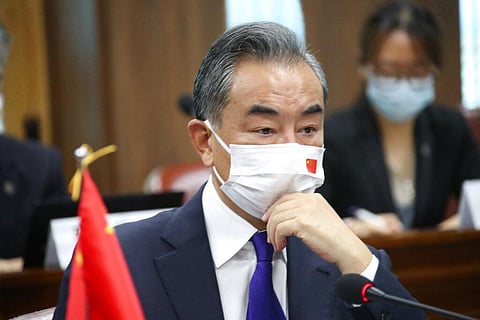

BEIJING: China sees the current Nepali Congress-led government as pro-Western and anti-China with a Chinese official saying that Communist Party of Nepal CPN (Maoist Center) Chairman Pushpa Kamal Dahal has double standards on the Millennium Challenge Corporation (MCC) compact.
One Chinese official in Kathmandu says, "We tried hard to stop the MCC compact's parliamentary approval, but we were left with no option when even the leaders who had earlier assured us of the compact's failure started shaking under US pressure," reported The Annapurna Express (ApEx), a Nepal-based media outlet.
The US Government's MCC signed the pact with the Government of Nepal in September 2017 aimed at maintaining road quality, increasing the availability and reliability of electricity, and facilitating cross-border electricity trade between Nepal and India--helping to spur investments, accelerate economic growth, and reduce poverty.
However, Chinese state media has said that the MCC compact undermines Nepal's sovereignty and comes with risks. Last month, Nepal's House of Representatives ratified the MCC pact following weeks of a rift within the ruling alliance.
The ruling alliance later adopted the 12 points which clearly stated that the parties will not consider MCC a part of US military strategy.
As the ratification is now passed, Beijing is reportedly reassessing its relations with Nepali leaders, particularly those it had trusted before. In a bid for new ways to engage Nepal post-MCC compact ratification, Chinese Foreign Minister Wang Yi will visit Kathmandu.
Another Chinese official, on the condition of anonymity, stated, "Implementation of the BRI projects in Nepal is important for Beijing," adding "But this time Beijing is more worried about the security challenges emanating from the compact's approval."
Wang Yi's unprecedented and unplanned visit is only suggesting an unusual level of urgency at the unfolding events in Nepal.